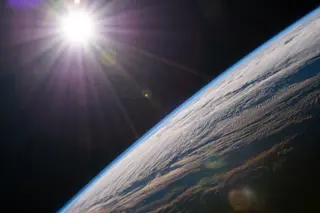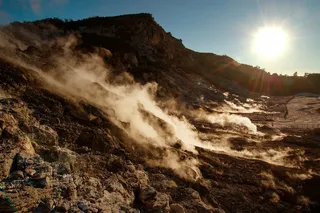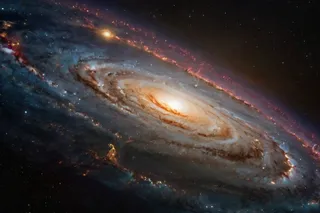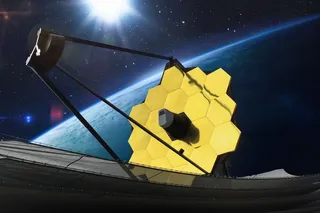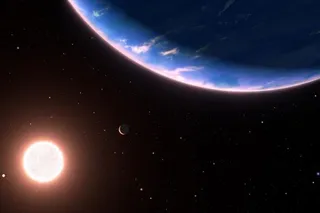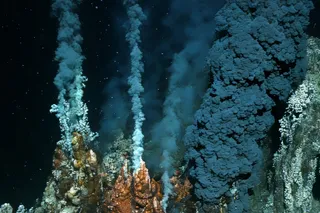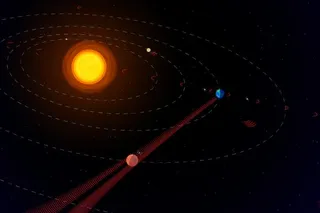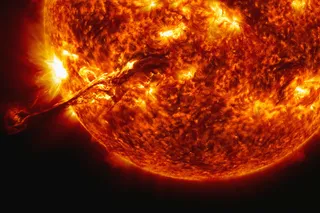A new study is challenging the longstanding theory that Earth formed in a pinball fashion, through random collisions of rocky stellar bodies that crushed together through gravity. The water we enjoy would have collided at random, too, when one or more comets smashed into the growing planet, the old theory says.
“If that is how Earth was formed, then it is pretty lucky that we have water on Earth,” says Martin Schiller, an associate professor at the University of Copenhagen, in a press release. “This makes the chances that there is water on planets outside our Solar System very low.”
A Planet of Pebbles
But the new paper argues that luck has nothing to do with it as water is a normal part of planetary formation. Any Earth-like planet should have the molecule critical to life as we know it, and this exoplanet should have formed relatively quickly, as our planet did.
Read More: Life Elsewhere in the Universe: When Did We First Consider the Possibility?
The Earth, once thought to have slowly accreted over 100 million years, actually took less than three, the paper says. The researchers paint a very different picture of planet formation, one based on small millimeter pebbles that joined together. The study analyzed silicon isotopes from 60 different meteorites and planetary bodies and created something like a genetic tree showing which sources had contributed to Earth’s formation and which hadn’t.
“There was a disk around the young Sun where the planets were growing,” says Isaac Onyett, a Ph.D. student at the University of Copenhagen, in a press release. “The disk was filled with small dust particles. Once a planet reaches a certain size, it sorts of acts like a vacuum cleaner, sucking up all that dust very quickly. And that makes it grow to the size of earth in just a few million years.”
Where Did Earth's Water Come From?
Meanwhile, icy particles in the disk would have joined the pebbles in forming the new Earth.
“This process contributes to the presence of water during Earth’s formation, rather than relying on a chance event delivering water 100 million years later,” says Onyett.
This new model of planet formation has major implications for astronomy and the search for water-rich exoplanets.
“This theory would predict that whenever you form a planet like Earth, you will have water on it,” says Martin Bizzarro, a professor at the University of Copenhagen, in a press release. “If you go to another planetary system where there is a planet orbiting a star the size of the sun, then the planet should have water if it is in the right distance.”
Read More: Can Life Exist on a Rogue Planet?


